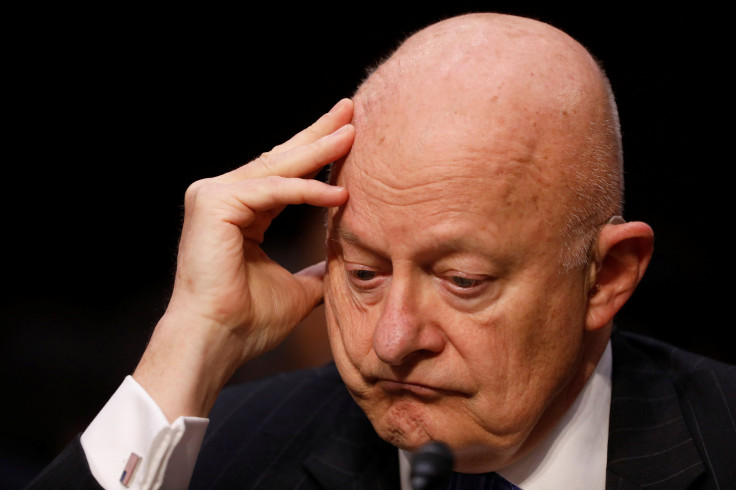Obamagate? Trump Seeks Full Investigation Into Obama Administration Handling Of Intelligence

KEY POINTS
- Trump says "no more Mr. Nice Guy" in examination of Obama administration actions
- Sen. Rand Paul said unmasking the identity of former national security adviser Michael Flynn was an abuse of power
- Former DNI James Clapper calls unmasking requests routine in efforts to understand the significance of intelligence intercepts
As President Trump tried to turn attention away from the coronavirus pandemic by painting as illegal Obama administration handling of intelligence intercepts, former Director of National Intelligence James Clapper said Thursday there was nothing unusual about requests to “unmask” the identity of American citizens caught up in the surveillance of foreign individuals.
Trump tweeted Thursday a full investigation should be conducted into requests that identified former national security adviser Michael Flynn in surveillance on then-Russian Ambassador Sergey Kislyak. Flynn pleaded guilty twice to lying to the FBI about his contacts with Kislyak, but the Justice Department this week sought to drop the charges against him, the latest step by the administration to delegitimize the Mueller investigation into Russian interference in the 2016 presidential election.
“If I were a senator or congressman, the first person I would call to testify about the biggest political crime and scandal in the history of the USA, by far, is former President Obama. He knew everything,” Trump tweeted in demanding Senate Judiciary Committee Chairman Lindsey Graham open an investigation.
Earlier he tweeted “Obamagate.”
Sen. Rand Paul, R-Ky., started the drumbeat Wednesday, saying former Vice President Joe Biden had been caught “red handed” in seeking the unmasking. On Thursday he told Fox News the action amounted to an abuse of power.
"So, that's what needs to be investigated," Paul said. "What I want to know is what possible national security reason would there be to unmask Flynn?"
Clapper, however, challenged that position, saying he routinely received such requests, which he said were sometimes necessary so the implications of the intelligence could be assessed.
“Over the six-and-a-half, almost seven years when I served as DNI I would say perhaps once or twice a week perhaps,” Clapper said on CNN.
“It’s a routine thing. It’s appropriate and legitimate when you have a valid foreign intelligence target engaging with a U.S. person. Is it, for example, an insider, someone in the government engaging with a foreign adversary? So, it’s important from the standpoint of potential jeopardy to national security that you understand what’s going on.”
© Copyright IBTimes 2024. All rights reserved.






















